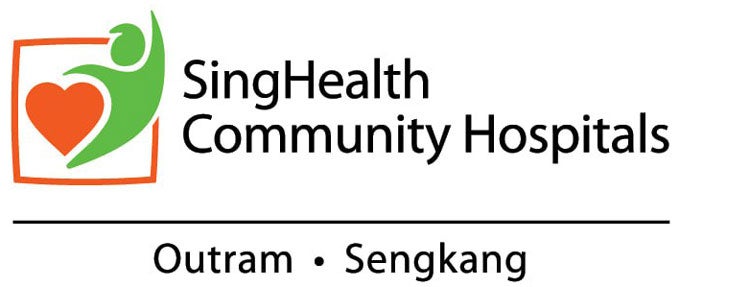SingHealth Community Hospitals will NEVER ask you to transfer money over a call. If in doubt, call the 24/7 ScamShield helpline at 1799, or visit the ScamShield website at www.scamshield.gov.sg.
Help is Just Around the Corner

Workplace actions can lead to many different emotional responses. The Demise Patient Debrief initiative at Sengkang Community Hospital allows staff to share their concerns and be supported in a positive work environment so that they can provide the best for our patients.
It is never easy dealing with the topic of death. While there are many forms of support in palliative care focusing on patients and their family members, behind every palliative story is also a strong dedicated healthcare team.
A confident and devoted care team will ensure the best outcome for patients and their caregivers' physical, social, emotional and spiritual needs. This support makes death less frightening and more about how to obtain peace and dignity for the patient.
On 25 June 2020, Sengkang Community Hospital (SKCH) started its first Demise Patient Debrief Session to provide support for its palliative team and have them reflect on patients who have passed on.
"Our Medical Social Workers worked with our Nursing colleagues to materialise this project as we felt it was important for the palliative team to share how they feel and cope with patients' demise," shared Prabha D/O Techna Mitti, Senior Medical Social Worker at SKCH.
It took the Medical Social Services (MSS) team two weeks to prepare for the first session which saw participation from the Allied Health, Medical and Nursing teams.
Read Also: Doing More Together
Coping with Palliative Care
The first session lasted for almost two hours. It kick-started with a short ice breaker where everyone introduced themselves and shared how they were coping in the palliative care ward.
"It was nice to hear from everyone in the care team. While we see each other every day in the ward, we seldom get to talk about our own feelings and perspective, especially as a palliative team," shared Nagavali D/O Letchumanan, Nurse Clinician at SKCH.
After the check-in, the team then proceeded to bring up and discuss various challenges faced by patients and family members, their expectations and coping with staff's emotional stress.
"During the session, a nurse shared with us about her experience in caring for a patient who passed on during one of her shifts," said Prabha.
It was her first time working overseas and caring for palliative patients, and this experience turned out to be quite an ordeal for her.
The nurse was at a loss for words when the family members began to ask her about the patient's fading health and was unsure how to properly comfort them.
To help the care team overcome such fears, Prabha conducted counselling sessions for the nurses that helped to address their emotional needs. She advised the nurses to approach the MSS team or their colleagues whenever they needed support.
Prabha also coached them on how to connect with patients' family members by providing some communication tips. This would help them to address concerns by patients and their caregivers, and understand their needs without any apprehension.
For the nurse who shared her story, being new to caring for palliative patients, she needed time to adapt. With guidance from experienced colleagues, she was eventually able to work well and grew to like her work in the palliative ward. She felt better and continued to keep in touch with the MSS team.

Support towards patients
The Demise Patient Debrief has been on-going for eight sessions now. Through it, the palliative team at SKCH is able to stay connected and inspire one another.
The final stage of a terminal illness can be challenging for both patients and their caregivers. A care team that is armed with knowledge and confidence can help to provide comfort, and support the families to deal with grief and make final decisions.
Equally important is the support given to staff who may deal with the matter of death on a regular basis. Knowing that someone will be by their side gives them the assurance that help is always available to them.
A frequent reminder from Praba to the care team: "Remember you are doing a great job in caring for our palliative patients. You are not alone in this!"
This article was published in Hospice Link Newsletter December issue
Keep Healthy With
@2025 SingHealth Group. All Rights Reserved.
















